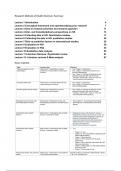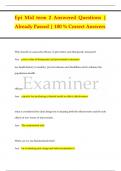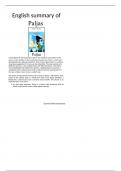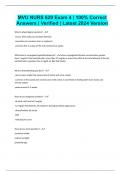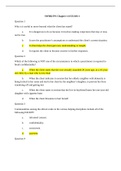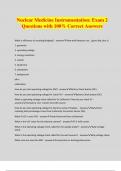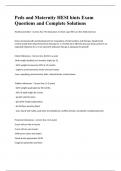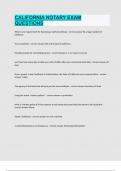Samenvatting
Summary of ALL Lectures Research Methods for Health Sciences (AM_1255)
- Instelling
- Vrije Universiteit Amsterdam (VU)
Summary of ALL Lectures Research Methods for Health Sciences (AM_1255). Master Health Sciences. Bevat alles aantekeningen uit het college + volledige overname van alles wat er in de college word gepresenteerd. Alle benodigde hoofdstukken van het boek Doing Research in the Real World by Gray worden...
[Meer zien]
